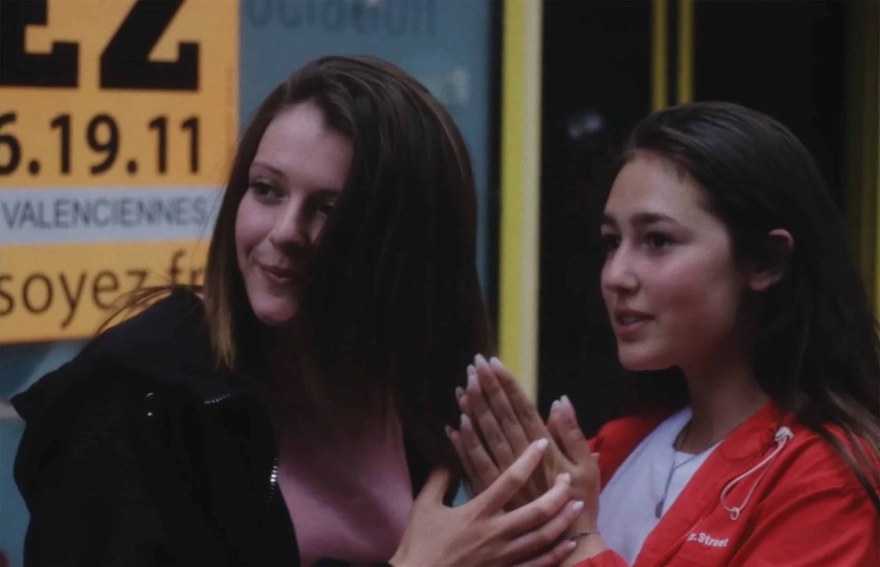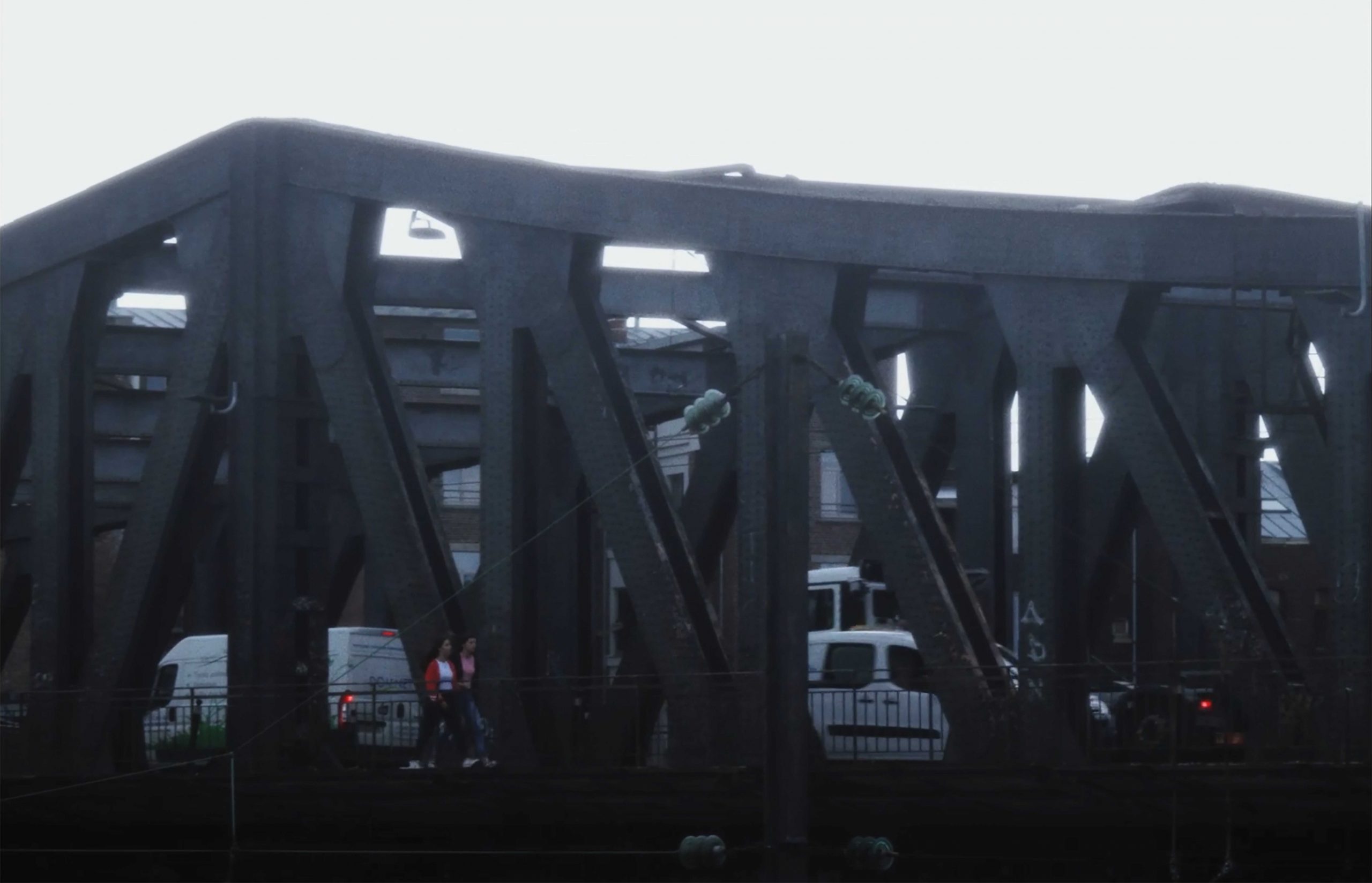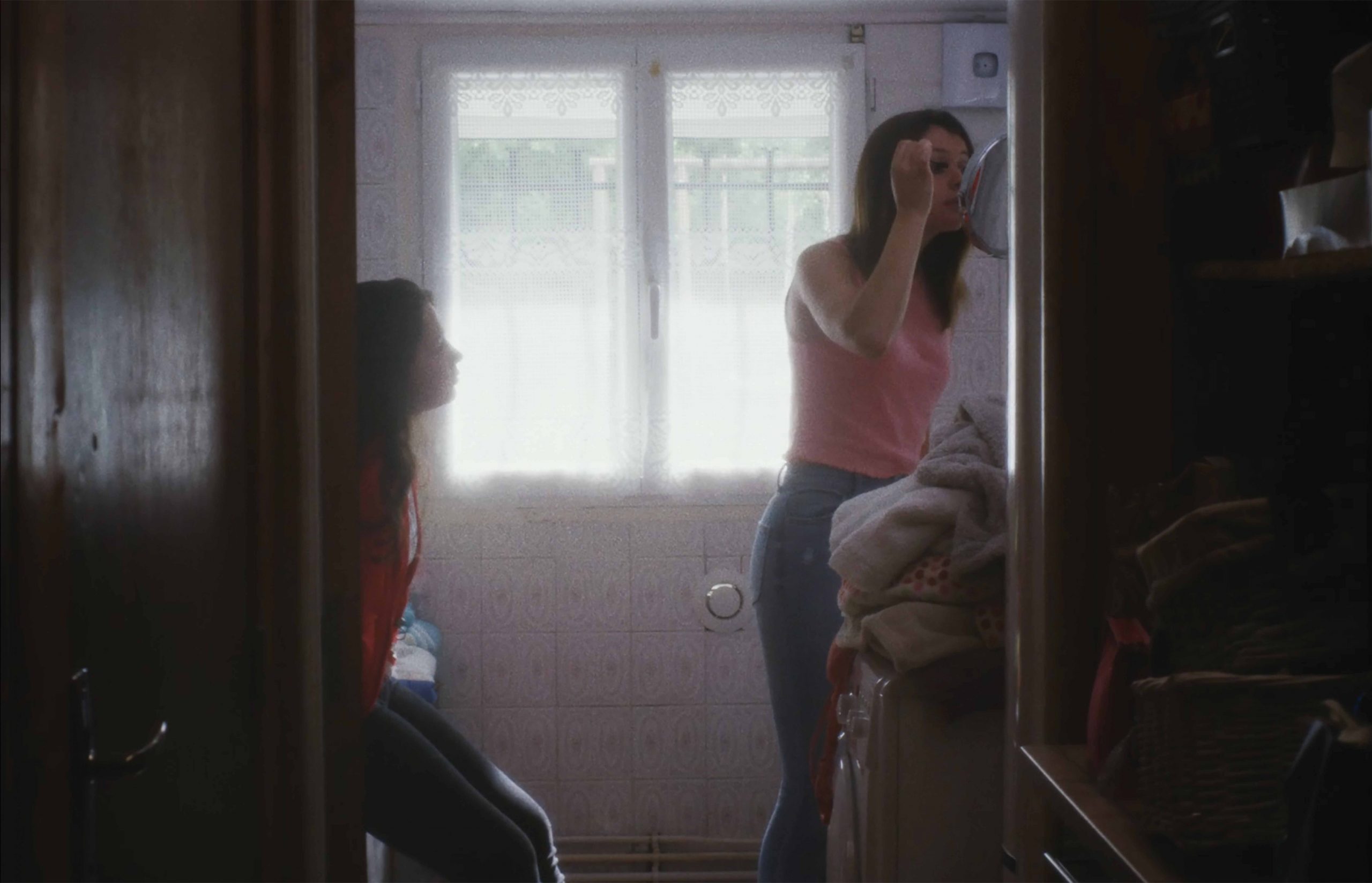Breakfast with Princesses
Interview with Margaux Elouagari, director of Princesses
Can you explain the title?
What I like most about the title is its paradoxical side. In their minds, Lindsay and Leslie are definitely princesses or they want to become them, but in reality they’re not princesses for anyone else, not their family nor the boys they hang out with, whether friends or potential boyfriends. No one puts them on a pedestal or respects them. They have to fight for that. That’s also why I chose that font: this is not a Disney film, life isn’t like that. A teenager’s life is very often far from a fairy tale. They’re princesses because they want to be, and to hell with the consequences.
What drove you to talk about the mishaps of these young girls?
I wanted to show a certain youthful strength, driven by their friendships and their solidarity. Life is often about being led to overcoming trials; for them it can be more complicated because they don’t have a present, well-meaning family; they’re not from a really privileged social background, and so forth. I actually also think I wanted to talk about their mishaps because their experiences are violent, but it’s our world and our reality. Filming is a way of placing that there, so we don’t forget, so we inform.
Is that “world” one you’re familiar with? What sort of research did you conduct?
I didn’t do any research. This is a story I experienced, and we filmed in the same towns, the same place, the same tram… So, yes, I’m pretty familiar with it. Obviously, it’s been spruced up, softened, the reality is more violent. We concentrated more on questions of style for the clothes, and on the music and language. Working on transferring the story to a new generation.
Was the dialogue all scripted beforehand, or was some of it improvisation?
Everything was written, but they were allowed to improvise during shooting. It wasn’t always easy for the actors to improvise so we came up with a game: sometimes, for a given scene, I’d tell an actor to say this line or do this thing that wasn’t in the script without telling the others, which forced them to improvise. For example in the scene where they cross the field in order to get back to town, Leslie really needed to go pee so we decided to have her improvise that, but we told her, “Don’t say anything to Lindsay, it’s a secret. You’re going to surprise her”.
How did you cast the actors?
I did two casting calls. I met several dozen teenagers who came on their own initiative and who’d never been to a casting before, nor for the most part done any films. That’s when I met Lorina (Lindsay). Later I met friends of the group of actors I’d selected. For the roles of Antho and Julien, I asked an acquaintance who had pals from a private catholic high school in Valenciennes. I also went to meet some young actors at a theater workshop near Valenciennes, and that’s how I met Thibaut (Alex). But Alex is a special case because at the outset, his character wasn’t really the one you see in the film, he was a shy boy, not very secure, a complete stoner. When I met Thibaut, I knew I wanted him to play Alex but not to play the role as it was written, but to play himself, a very funny boy who takes up space, a joker. We talked about it and we found the new Alex, and that was a wonderful casting gift.
This is not your first film in competition at Clermont-Ferrand. Tell us about a memorable moment from your previous Festival.
My strongest memory is when I came out of the screening that my first short film La Ducasse was part of. In the great lobby of the Salle Cocteau, there were a lot of people and it was difficult to move around, but I had time, I was lost in my thoughts so I let people by. And all of a sudden this man starts barking at me that if I was like that in life, if I let people walk all over me I’d be crushed and never amount to anything. He obviously didn’t realize I’d just gotten out of the screening where my film was showing and that it was a huge premier for me to watch it in front of hundreds of people I’d be able to hear react, including himself most likely. No one could give me a lesson at that moment, and it’s pretty rare for me not to react to that type of person.
What do you think the future holds for short films?
I’m optimistic about the question. I meet a good number of people from many different walks of life who watch short films and love the format. I’m sometimes very surprised to learn that people have seen La Ducasse or other shorts I love. I used to think my film wouldn’t survive long or at all after going to festivals, but that’s not true. I wish shorts could find a place in theaters, before the feature film or in dedicated programs.
If we were to go back into lockdown, what cultural or artistic delights would you recommend to alleviate our boredom?
I recommend listening to the stories from the Decameron voiced by actors from all over on the SoundCloud station LundiMatin. Arte’s podcasts on armed robbers are also to die for. In general, I think podcasts are good during lockdown, listening to voices and learning stories without seeing anything.
Princesses is being screened as part of National Competition F12.










